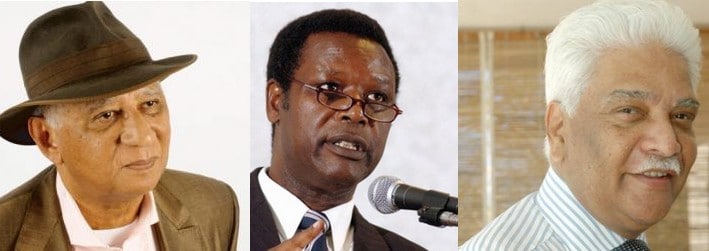In November 2014, the Senegalese former president Abdou Diouf will leave the head of the International Organization of Francophony (OIF), the institution he has been managing since 2002. Candidates for the succession of the Senegalese are being revealed. After the Mauritian Jean Claude de L’ Estrac, two other African personalities not the slightest also sent their applications to the office of OIF. They are the former Congolese Prime Minister and currently ambassador in Paris, Henri Lopes and the Burundian Pierre Buyoya, African Union representative for Mali and Sahel.
On 29th and 30th November 2014, Senegal will welcome the 15th summit of Francophony. The participants in this high-level meeting will appoint the one who will be the successor of Abdou Diouf, the overlord since 12 years. The chance to have a candidate of sub-Saharan Africa at the head of the international institution is high.
Pierre Buyoya (Burundi) and Henri Lopes (Congo Brazzaville) are the candidates in sight. According to Jeune Afrique magazine, other applications are also announced among which the one of Dioncounda Traoré, the Malian former president. However the latter has not yet received the official blessing of his country.
The International Organization of Francophony was created on 20th March 1970. At that time, the institution was called Cultural and Technical Cooperation Agency (ACCT). OIF gathers 77 countries or governments (57 fully-fledged members and 20 observers), or more than 890 million inhabitants were spread on the five continents. All member States of the institution have French language in common. OIF also actively work for democracy and peace in the world.
Original text by: Roger ADZAFO
 Africa Top Success Ils font l'Afrique
Africa Top Success Ils font l'Afrique










